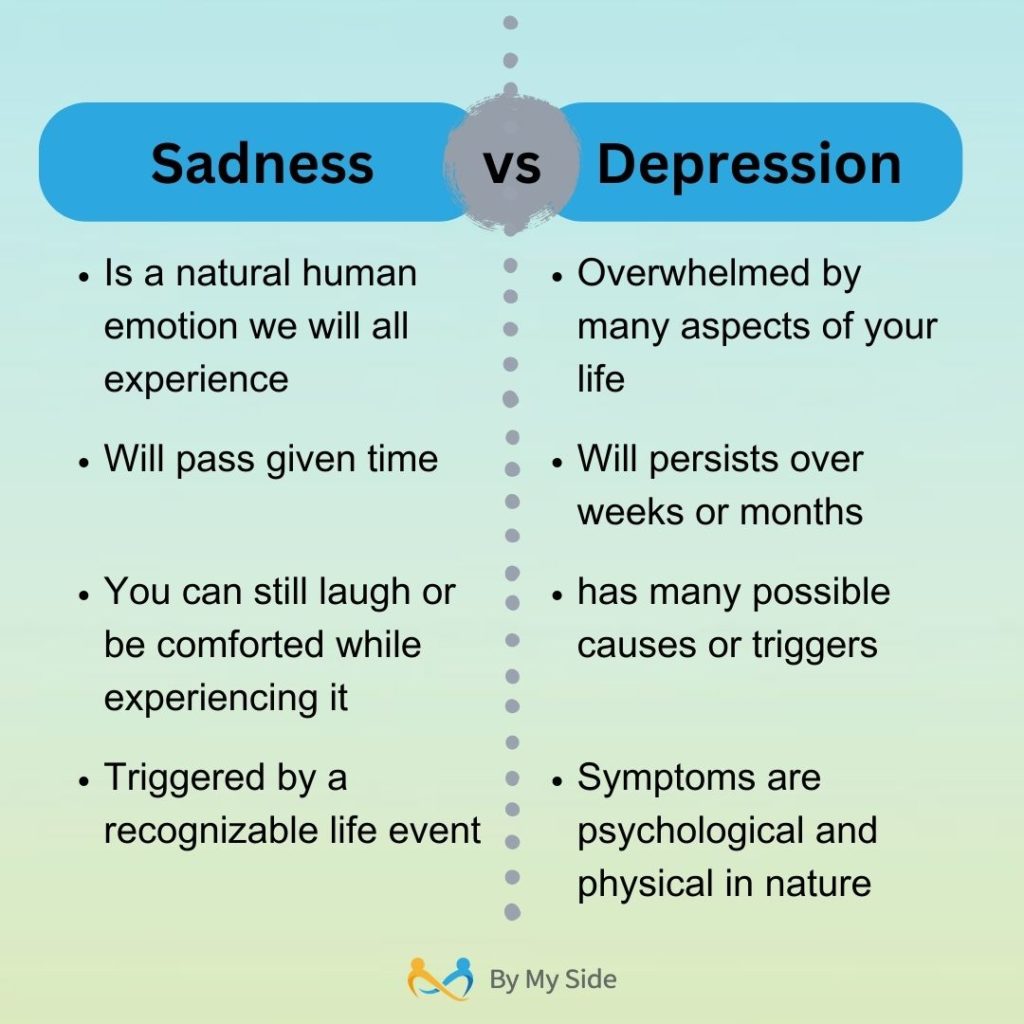Despite the common opposing opinion, sadness as a singular emotion isn’t bad. It may feel uncomfortable or negative, but sadness, like any other feeling, is usually present for a reason. It is a direct reaction to events and lets us know that we care about whatever just happened in our lives–without it, it would be difficult to tell if things mattered to us at all.
Sometimes, though, sadness isn’t so simple. It comes out of nowhere, or it hangs over us constantly for no discernible reason; it infiltrates our hearts when we’re trying to have fun or rubs up against us at night like a cat. This is often a signal from our brains that something isn’t right, whether it’s an extrinsic factor like lack of connection or an internal one, which depression usually is.

Depression can stem from both internal and external factors. The easiest explanation for it is a prolonged period of sadness, one that lasts longer than normal given the severity of the trigger. However, people with chronic depression usually don’t just feel sad all the time, and oftentimes there isn’t any trigger at all–they just feel off, like they’re walking through fog or trying to climb an endless hill. When this is the case, it can mean something is wrong physiologically, and no amount of lifestyle changes will make a difference. This is usually where an appointment with a psychiatrist is beneficial.
Sadness is a universal emotion, but depression feels different for everyone.
From profound melancholy to extreme numbness to vitriolic nihilism, anyone who suffers this disorder is likely to experience it differently than someone else. It’s also not uncommon for the same person to experience the different shades of depression throughout their experience with it; it may begin as something like sadness and evolve into a strange, omnipresent apathy.
Essentially, sadness is usually there for a reason, and while it may not feel good, it doesn’t hurt us to feel it. It teaches us to self-soothe and to recognize the joy in the times that we aren’t sad–as the saying goes, there’s no rainbow without rain.
Depression, on the other hand, feels and acts more like an enemy. It hinders our productivity and is more likely to convince us that everything is always negative than to appreciate joy. Unlike sadness, severe depression can feel like a disability, stripping us of our selfhood and our desires. It is also much more difficult to “get over” or pull ourselves out of, particularly if we don’t or can’t employ professional help.
Another factor is that sadness is usually discernible as such; it looks like a frown or a tear on your cheek. Depression is sneakier. It can manifest itself as emotions like indifference or irritability, or actions like sleeping all the time or neglecting responsibilities because you feel vastly incapable of productivity.
Sadness is often a symptom of depression; it isn’t the same thing as depression.
Sadness is an emotion, whereas depression is a pernicious mental state and disorder. And while one can “feel depressed,” that’s also not the same thing as having depression, because being depressed and having depression are different.
Even if you aren’t exactly sure whether you’re dealing with sadness or depression, it’s probably time to seek professional help if how you’re feeling hasn’t changed in weeks and has been actively disrupting your lifestyle.
A physician can help direct you to resources, and conversations with a therapist or screenings by a psychologist can determine the truth behind what you’re feeling. Even if you can’t afford treatment, any professional worth their salt will at least be able to offer advice, present resources, and direct you to free services online or in your area.
What about when other factors, like lack of transportation or embarrassment (which we understand, but remember, there’s no shame in feeling this way) keep you from getting help? Tune in later this week for tips on how you can be your own savior when it comes to sadness and depression.
